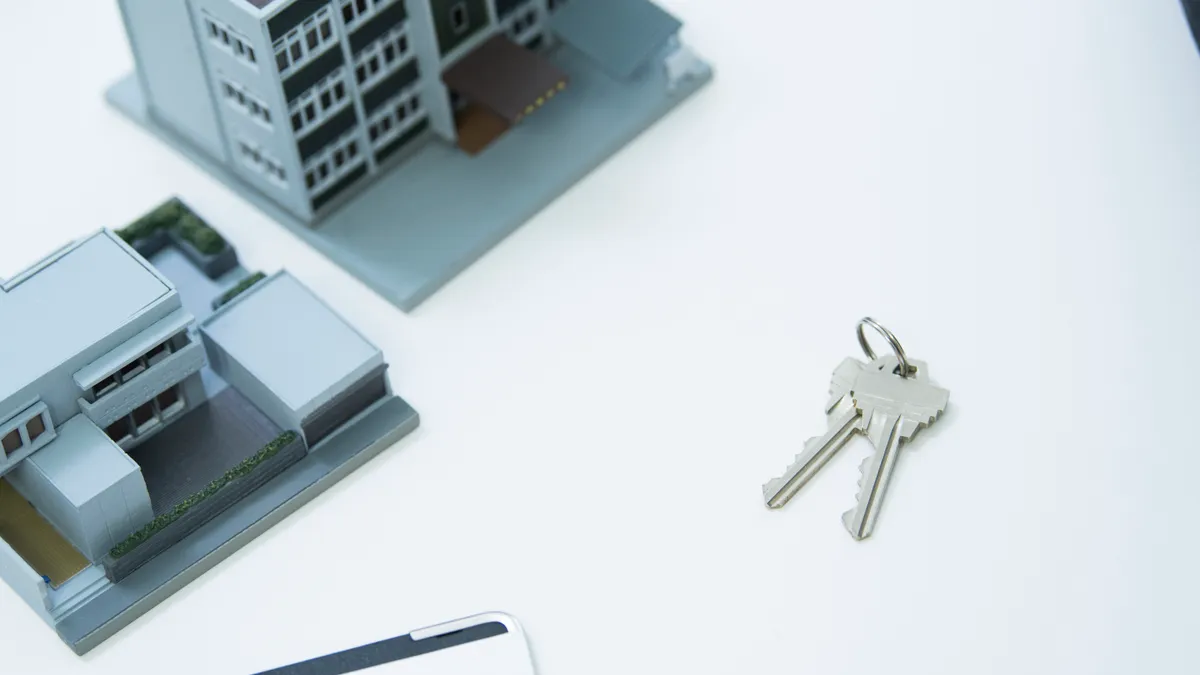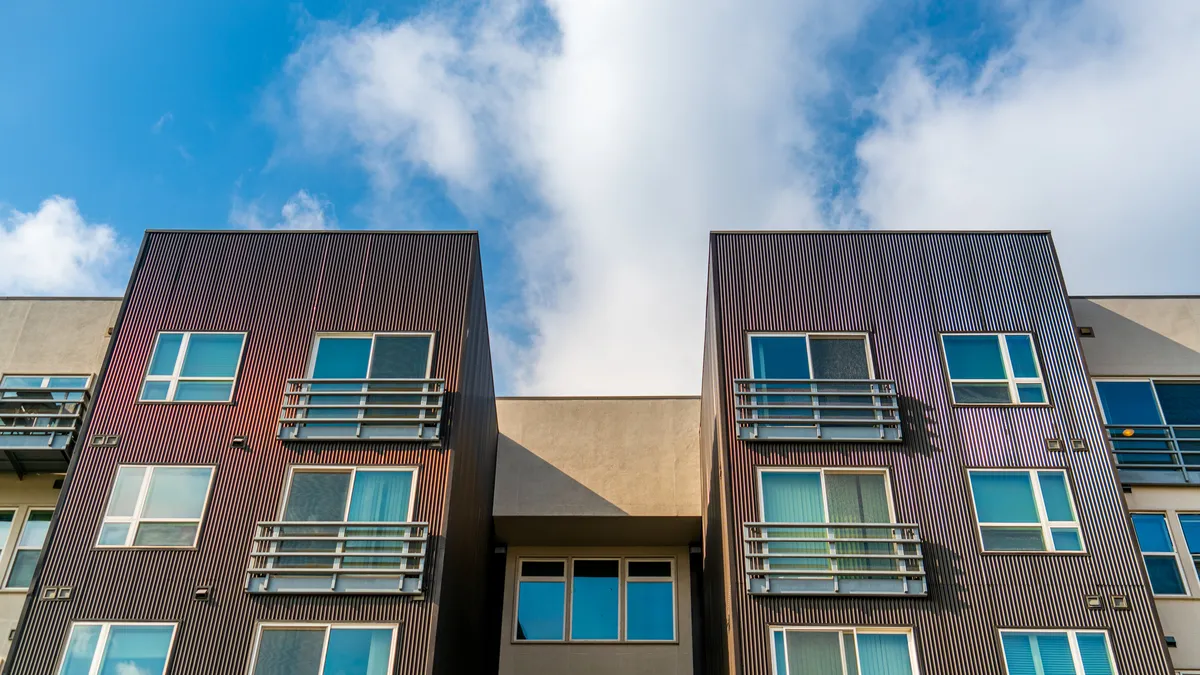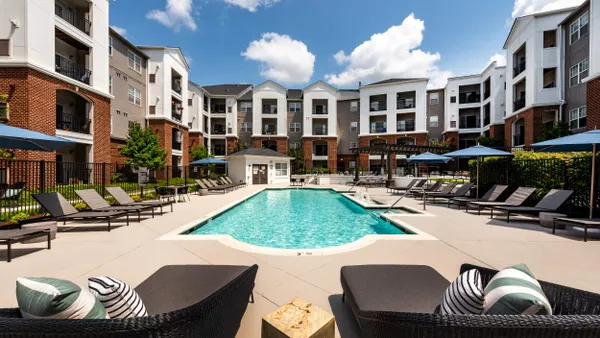Dive Brief:
- The U.S. Department of Housing and Urban Development’s multifamily lending fell more than 28% to $21.01 billion year over year in fiscal year 2022, according to Trepp. In FY 2021, HUD funded $29.48 billion, its most active year ever.
- In FY 2022, HUD originated 1,077 loans for properties with 159,707 apartment units. The $19.51 million average loan balance in FY 2002 was higher than the $17.82 million average the year before.
- During the final three months of 2022 (the first quarter of FY 2023) when multifamily lending fell across the board, HUD’s pace dropped even further, putting it on track to originate $15.76 billion for the full fiscal year. Overall, it originated 239 loans for $3.94 billion in the quarter.
Dive Insight:
The decline in HUD lending mirrored the drop in transactions and originations throughout the multifamily market in the second half of 2022. For the full year, transactions fell 17% YOY to $294.1 billion in 2022, according to a report that data firm MSCI Real Assets shared with Multifamily Dive. The slowdown continued in January 2023 when transactions fell 71% to $6.2 billion as buyers and sellers were still far apart on pricing.
With fewer transactions, there were fewer opportunities to make loans. However, many private lenders also dropped out of the market in 2022, which could open up opportunities for federal funding sources in 2023.
Some observers expect Fannie Mae and Freddie Mac to take a larger market share. “I think the agencies will pick up a bigger portion of the pie,” said Dan Brendes, senior vice president and head of government-sponsored enterprise lending at New York City–based commercial real estate services firm Berkadia.
HUD should also continue to be a go-to spot for borrowers in 2023. In fact, even if originations aren’t new, the agency’s loans could be coveted because buyers can assume them when buying a property.
Recently, Continental Realty Corp. assumed a HUD loan when it purchased the Sycamore at Tyvola in Charlotte, North Carolina, for $96.3 million. Although the HUD approval process is time-consuming, the payoff can be worth it for a buyer.
“This loan was under market when we agreed to assume it,” Ari Abramson, CRC’s vice president of acquisitions, told Multifamily Dive. “As rates moved up unexpectedly, it became 300 basis points below current fixed long-term interest rates, which made the loan even more attractive.”
Click here to sign up to receive multifamily and apartment news like this article in your inbox every weekday.











